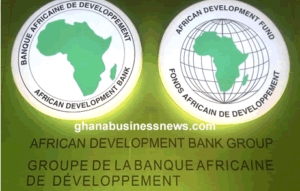AfDB mobilizes $8.9b for Africa’s low-income countries
 The African Development Fund of the African Development Bank (AfDB) has mobilized $8.9 billion to finance Africa’s low-income countries.
The African Development Fund of the African Development Bank (AfDB) has mobilized $8.9 billion to finance Africa’s low-income countries.
In a press release copied to Ghana Business News, the AfDB says after a year of intense negotiations and a difficult global economic outlook, development partners of the African Development Fund (ADF) have agreed to commit a total package of $8.9 billion to its 2023 to 2025 financing cycle.
“It is the largest replenishment in the history of the Fund. ADF is the concessional window of the African Development Bank Group, providing grants and soft loans to the continent’s low-income countries,” the Bank said.
It noted further that the $8.9 billion replenishment package includes $8.5 billion in core ADF funding and $429 million for the newly created Climate Action Window.
Akinwumi Adesina, President of the Bank Group said: “I am impressed by the huge commitment and efforts of the ADF donor countries in stepping up support for Africa’s low-income countries, especially at this time of great economic, climate and fiscal challenges. This is the power of global partnerships and effective multilateralism in support of Africa.”
According to the release, the ADF-16 core funding represents a 14.24 per cent increase over ADF-15 of $7.4 billion.
“It is a strong endorsement of the African Development Fund and its impact in tackling the continent’s multiple development needs, including recovery from the COVID-19 pandemic, the effects of climate change, fragility, debt, and economic vulnerabilities.
Algeria and Morocco contributed to the Fund for the first time. They join Angola, Egypt, and South Africa on the list of contributing African countries. The Kingdom of Morocco hosted the fourth and final meetings of the new replenishment (ADF16),” the Bank added.
ADF-16 will support two strategic framework and operational priorities: developing sustainable, climate-resilient and quality infrastructure; and governance, capacity building and sustainable debt management in recipient countries. It will also focus on empowering women and girls as a condition for achieving inclusive and sustainable development, the release said.
